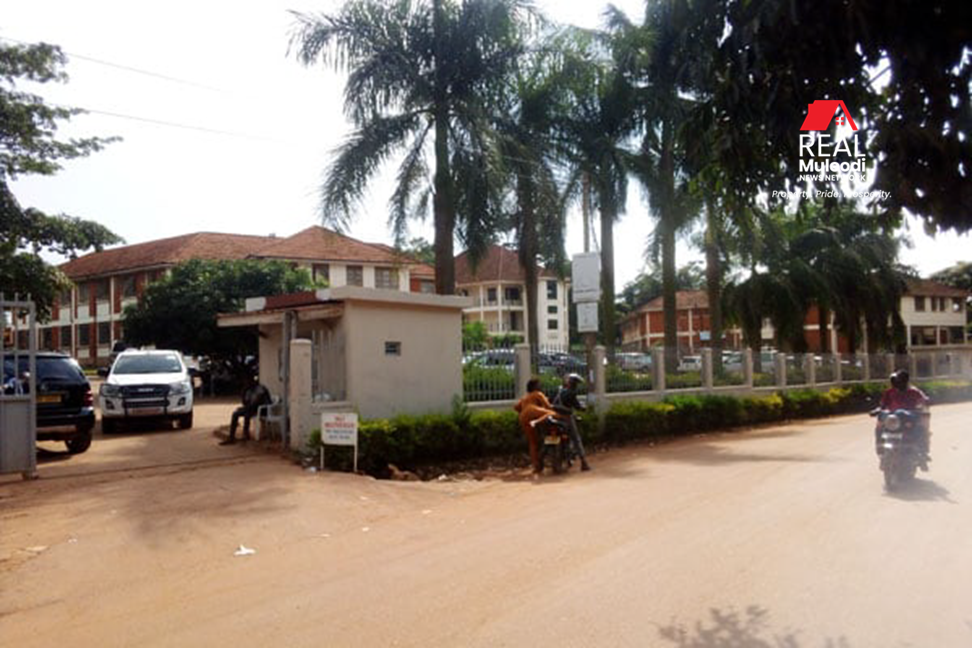UGANDA, Wakiso | Real Muloodi News | The Wakiso District has recently been at the centre of a significant dispute regarding the levying of property tax on landlords and school proprietors.
The Wakiso property tax has sparked widespread debate, with many stakeholders expressing concerns about the rates and the valuation process.
Background on the Wakiso Property Tax
The Wakiso property tax is part of the district’s efforts to generate revenue for local development. This tax applies to commercial buildings, hotels, recreation parks, and schools.
The valuation and assessment of properties are conducted to ensure that the tax is fairly levied based on the rateable value of the property.
Concerns from Landlords and Proprietors
Landlords and school proprietors in Wakiso District have raised concerns about the perceived high rates of the Wakiso property tax.
Mr Ali Edris Ssenyonjo, a landlord in Kyengera Town Council and a councillor representing Nsangi/Kisozi Ward, highlighted issues with the valuation process.
“Property tax collectors abuse the valuation law and charge high taxes compared to the standard of the structures,” Mr Ssenyonjo said.
Mr Hamidu Ssenkaaba, the Head teacher of Green Light Islamic SS Nansana, criticised the behaviour of tax collectors.
“They forget that we are their bosses; they don’t listen to us yet we have been complying over the years,” he said.
Mr Ronald William Mukasa, the Head teacher of London High School in Nansana, called for a revision of the tax rates and a clearer method of valuing school structures. He pointed out that many school buildings being taxed are underutilised due to low enrollment.
Mr. Vincent Kasozi Muwonge, the chairperson of Wakiso Traders and a property owner, expressed shock at the taxation of incomplete buildings.
“They start taxing the structure when it’s still on the foundation level and they come back again to demand the same money when the building is complete,” he said.
A school director in Nabweru, Wakiso District, who preferred anonymity, reported being asked to pay USh36 million in property tax despite having only six classroom blocks.
She stated, “I cannot pay that huge amount of money because I don’t have it. Sometimes, a school term closes without collecting full tuition from learners because even the parents don’t have the money.”
Official Responses and Clarifications
In response to these concerns, Nansana Municipality Mayor Regina Bakitte urged affected landlords to bring their issues to her office with all necessary documents.
“You may find that she [school director] doesn’t have an approved building plan because the highest property tax a landlord pays in Nansana is USh3 million,” she noted.
The Nansana Municipality Town Clerk, Mr. Festo Tandeka, emphasised the importance of paying property taxes for proper service delivery, support sustainable development and meet the growing needs of the population.
The revenue generated from proper collection and utilisation of property taxes is used to fund various public services, including enhanced infrastructure, better educational facilities, and improved healthcare services, road maintenance, garbage collection and public safety. Investing in these areas can significantly improve the quality of life for residents in Wakiso District.
He also acknowledged the need for fair assessment and informed taxpayers.
“There is a valuation law which those people must follow when making the valuation of the buildings. If they are not following it, that is wrong,” he stated.
Mr Tandeka also mentioned the option of paying taxes in instalments to ease the burden on taxpayers.
“There is also an alternative of paying taxes in instalments to enable the taxpayers to pay the money they can afford at the time,” he added.
Financial Projections and Legislative Framework
Wakiso District authorities have listed more than 80,000 buildings targeted for the Wakiso property tax. The valuation exercise conducted in 2023 aimed to ensure accurate assessments and fair taxation.
According to Mr David Kabaale, the Wakiso District Principal Financing Officer, the council had anticipated raising USh3 billion from the Wakiso property tax for the financial year 2023/2024.
However, with new taxable buildings identified, the district expects to collect USh3.6 billion.
In the 2022/2023 Fiscal Year, the district projected to collect USh3.2 billion but only realised USh3 billion.
The Local Government Act of 2005 mandates urban councils to set property rates not exceeding 12 per cent of the rateable value. This rateable value is 74 per cent of the annual revenue that a building owner collects from tenants, with the remaining 26 per cent allocated for utility bills and renovations.
The implementation of the Wakiso property tax is a necessary step towards generating revenue for local development and improving public services in Wakiso District. While there are concerns about the rates and valuation process, the local government has taken steps to address these issues and ensure that the taxation process is fair and transparent.
The district’s efforts to sensitise landlords and property owners about the importance of paying property taxes and the options available for making payments are crucial steps towards achieving compliance and transparency in the taxation process.
Landlords and property owners are encouraged to report any discrepancies or unfair practices to the relevant authorities. All stakeholders are working together to achieve these goals and ensure that the property tax system benefits the entire community.
READ MORE LIKE THIS:
Surveyor and 27 Others Face Litigation over 1,044 Acres in Wakiso Land Dispute



